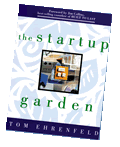
Authent-Wikiti Over the summer I consumed a bunch of books on art theft. (The Rescue Artist by Edward Dolnick is a great airplane read by the way.) These led to Frank Wynne’s I Was Vermeer: The Rise and Fall of the Twentieth Century’s Greatest Forger. This smart account of Han Van Meegeren, the most celebrated forger of the past century, sheds light into the way in which “truth” can be built collectively, regardless of true facts. (Stay tuned, there’s a moral in all this.) Van Meegeren was an accomplished artist, who, denied the full glory he felt entitled to, turned his talents to forgeries of the highest quality. His faux Vermeers were so brilliantly realized, in everything from technique and emotion to scientific verisimilitude, that he conned the leading critics of the day. They saw in his fake art an entirely new period of Vermeer’s life and art. Indeed, despite evidence of their fabrication, forged works of van Meegeren’s hang on the walls of the world’s foremost museums today. I mention this book on this blog (which is designed to focus on writing and entrepreneurship) for what it says about Wikipedia. Early in the book Wynne interviews an accomplished forger—nowhere near as good as van Meegeren, but quite successful nonetheless. The thief explains how counterfeit provenance begets an artificial truth that, over time, becomes accepted as genuine. “Most forgeries just get sold from one person to another and in the process they become more genuine: the more often they’re sold, the longer they hang on a gallery wall, the more genuine they are.” This pretty much sums up my feeling about Wikipedia, which continues to gain momentum as a fundamental business resource. (There’s perhaps no greater indictment than this Wall Street Journal article detailing the priorities set by Wikipedia authors when it comes to setting down important references.) In my opinion wikipedia is a gallery of earnest and occasionally beautiful forgeries, which have acquired the semblance of truth over time. And every day a crowd of viewers and contributors add another veneer of “wisdom” to a truth that has been collectively formed. Truth and forgery are essentially conjoined over time. The entries on Wikipedia are genuine, yet not true. They are not authoritative, in my book. Rather, in their own way, they are authentic. Which calls to mind a favorite quote of mine. “I’m very authentic,” boasts the character Agrado in Pedro Almodovar’s All About My Mother. “It costs a lot to be authentic,” she says in regard to the numerous plastic alterations of her body. Explaining her choices, Agrado adds: “And one can’t be stingy with these things because you are more authentic the more you resemble what you’ve dreamed of being.” Posted by tom at September 12, 2007 05:28 PMComments
Post a comment
|
Recent Writing Flow as the Grand Unifying Theory of Productivity Lowering the Personal Entrepreneurial Threshold Good Writing Begets Good Writing
THE BOOK
Read or print the Intro and
Read some book reviews at Inc, 1-800-CEO-READ, and the Miami Herald. Read the publisher's press release. Visit the companies that Tom discusses in the book Hear a recent lecture by Tom on the Startup Garden STARTUP RESOURCES Read about other books and web sites about starting your own business. TOM'S WRITING Just Managing – articles that Tom wrote for The Industry Standard and some Business Articles written for Inc., Fortune Small Business, Harvard Management Update, and other places. BUY THE BOOK To buy directly from me, simply go to Paypal and send 15 bucks to Tom@startupgarden.com. I'll take care of the rest. If you have any questions, email me at that address. |
| © 2001-2003 Tom Ehrenfeld | Site design by Tim Swan | |
